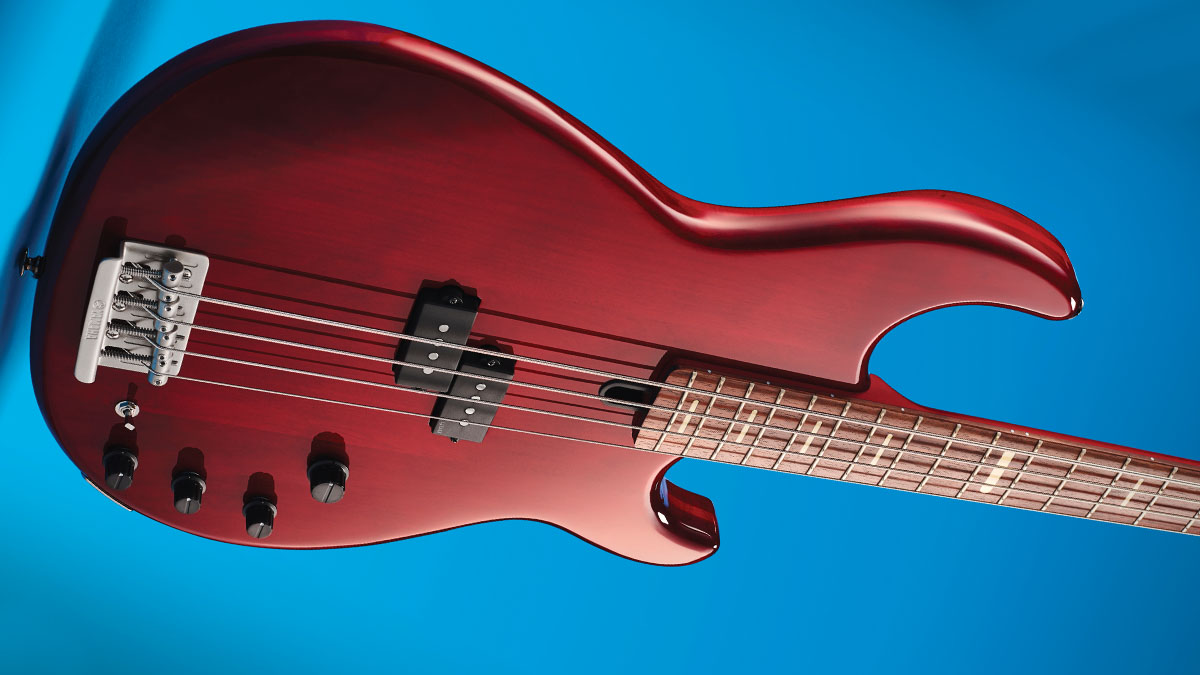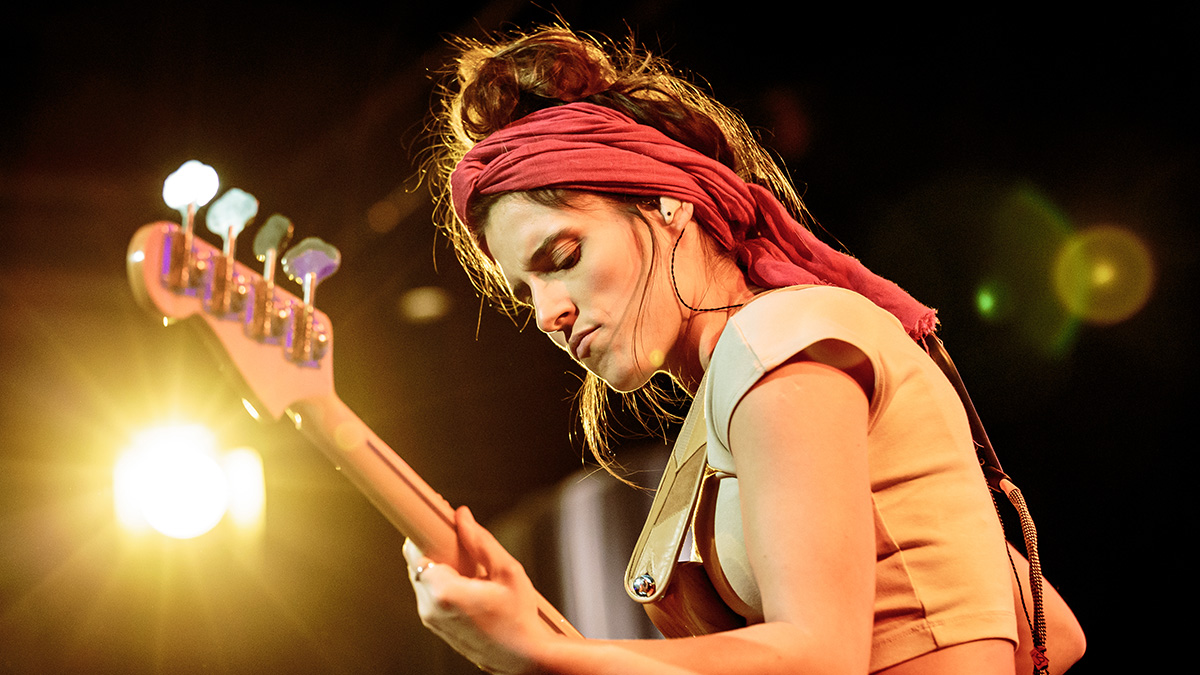Guitar World Verdict
A very user-friendly bass with a tone range to die for, Hooky's four-string will please players of all kinds of styles, with its fast, slinky feel complemented by a bold low-end voice.
Pros
- +
Great tones.
- +
Excellent playability.
- +
Good value.
Cons
- -
None, but a wider release wouldn't have gone amiss.
You can trust Guitar World
Few bass players have evolved their tone quite as radically, or as successfully, as Peter Hook, whose early music with Joy Division and later recordings with New Order featured him at front and center.
The upper register is where he’s made his mark, with all those classic lines from Love Will Tear Us Apart and beyond making up a significant legacy in our world, most of which were delivered on Yamaha BB models.
This new signature BBPH bass guitar has been a long time coming, and now it’s finally here, we’re the first reviewers to put it through its paces. Let’s plug in, stamp on a battered old chorus pedal, adopt Hooky’s trademark wide-legged stance, and give it a go...
Build Quality
Pick the BB up and all sorts of interesting contradictions are immediately obvious. The BB shape is old enough by now to look traditional, even classic, but Yamaha and Hook have evidently put their heads together with the aim of supercharging the design for the demands of the modern day.
Flip it over, and you’ll find a six-bolt neck join with the final two bolts angled in for extra strength; at the end of the body you’ll see a funky little chamfered face where the strings exit the body. These touches add a very modern sheen to this resolutely trad bass design, which ties in with the super-powered preamp that we’ll come to in a minute.

The body itself is a three-layered alder and maple sandwich, presented in the glossy, slightly grippy red finish that is so reminiscent of the classic BB. A volume, three-band EQ and active/passive switch make up an uncomplicated control panel, and there’s a single reversed split-coil pickup, all of which makes the BBPH satisfyingly simple to deal with for dull-witted bassists like me.
As always, it’s the finer details that take up the most effort and cost, and you’ll appreciate the bridge – a beautiful steel and brass unit – the smooth, lightweight tuners, and the LED on the battery compartment which glows when you’re out of power.
All the latest guitar news, interviews, lessons, reviews, deals and more, direct to your inbox!
This last feature will be made mandatory on all active basses when the revolution comes, as you’ll appreciate if you’ve ever been unlucky enough to experience ‘sudden bass death’ in the middle of a gig.
Sounds and Playability
For an Indonesian-built bass which occupies the saturated low- to mid-market price point, the BBPH has an unusually rich palette of tones.
Played in passive mode, with the treble pot functioning as a tone control, it gives you a surprisingly wide spectrum of sounds, from a pretty chunky thud at one end to a hissy clatter at the other. You could, if you were so minded, manage without any active components at all; this bass, as a passive-only model, would presumably cost significantly less and still do a perfectly fine job.
However, Hooky presumably requires his high notes to cut through several layers of guitar and keyboard in his current role as leader of The Light, hence the powerful preamp that is available at the flick of a switch. If you explore the opposite tone from his usual territory and roll on the bass to maximum, you get a truly thunderous response.
As well as its huge mid tones, you could easily downtune the bass and use it in a hard rock or metal band, if you wished
In fact, this control will overwhelm the mids and top if you allow it to do so, so handle it with care. The bass really comes into its own when you add some mid and treble, either individually or in combination. The mids are throaty and the top tones are cutting, although as always these adjectives don’t really describe sounds that well.
The point is really that you can find a wide range of thoroughly audible mid and high tones that will rescue you when you’re stuck in a muddy live mix and the sound guy isn’t paying attention. You might reasonably assume that a single-pickup bass such as this would struggle to produce such a powerful upper range, and yet here it is, right under your fingers.
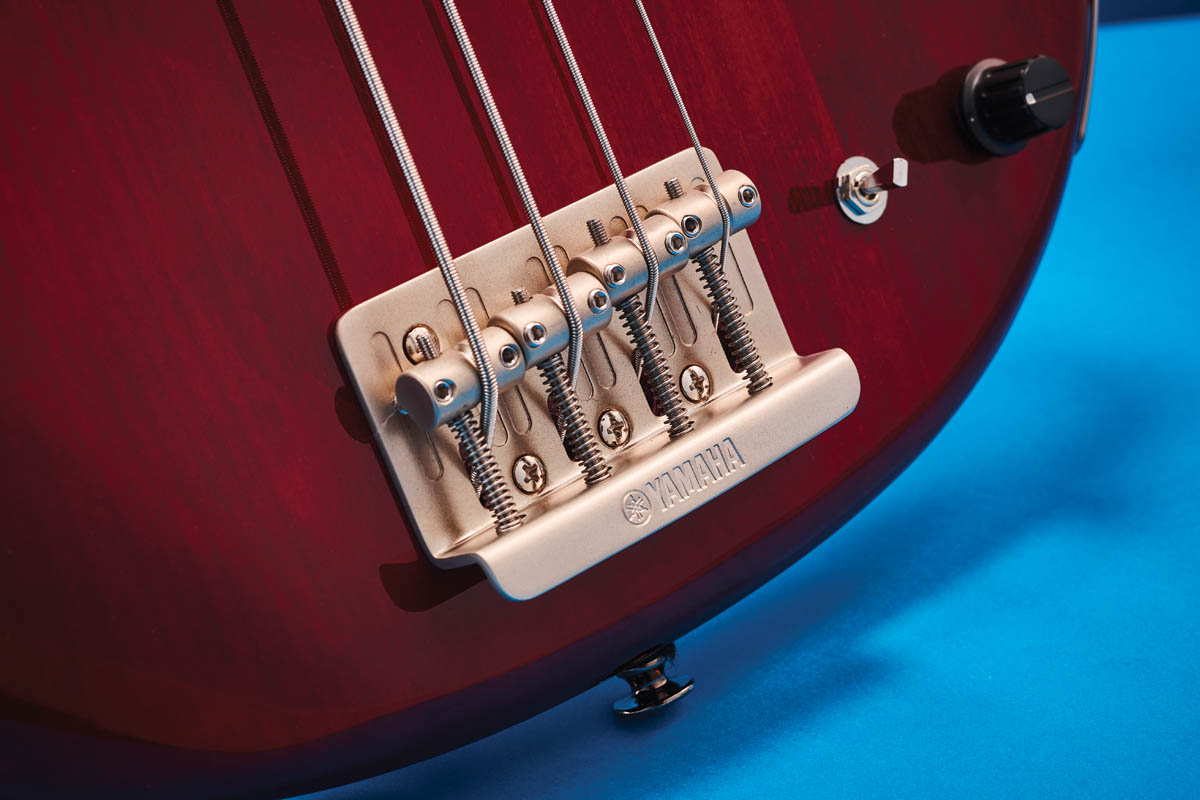
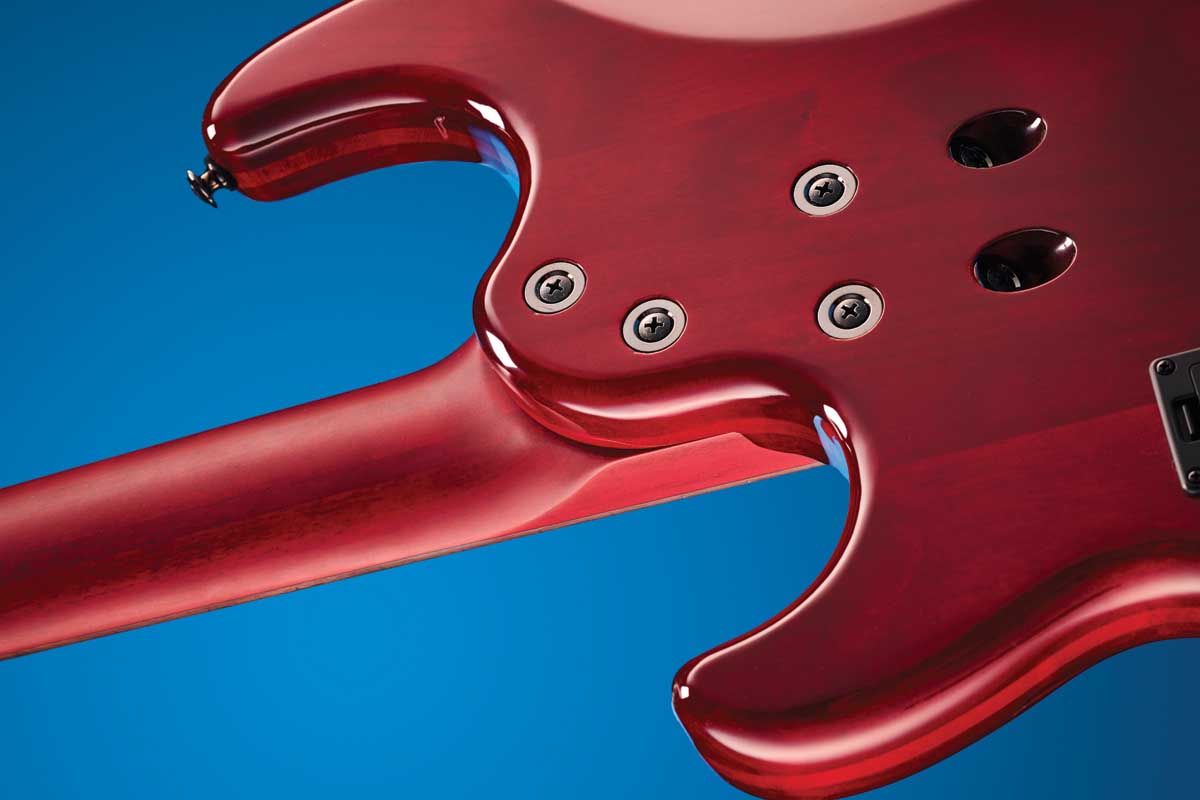
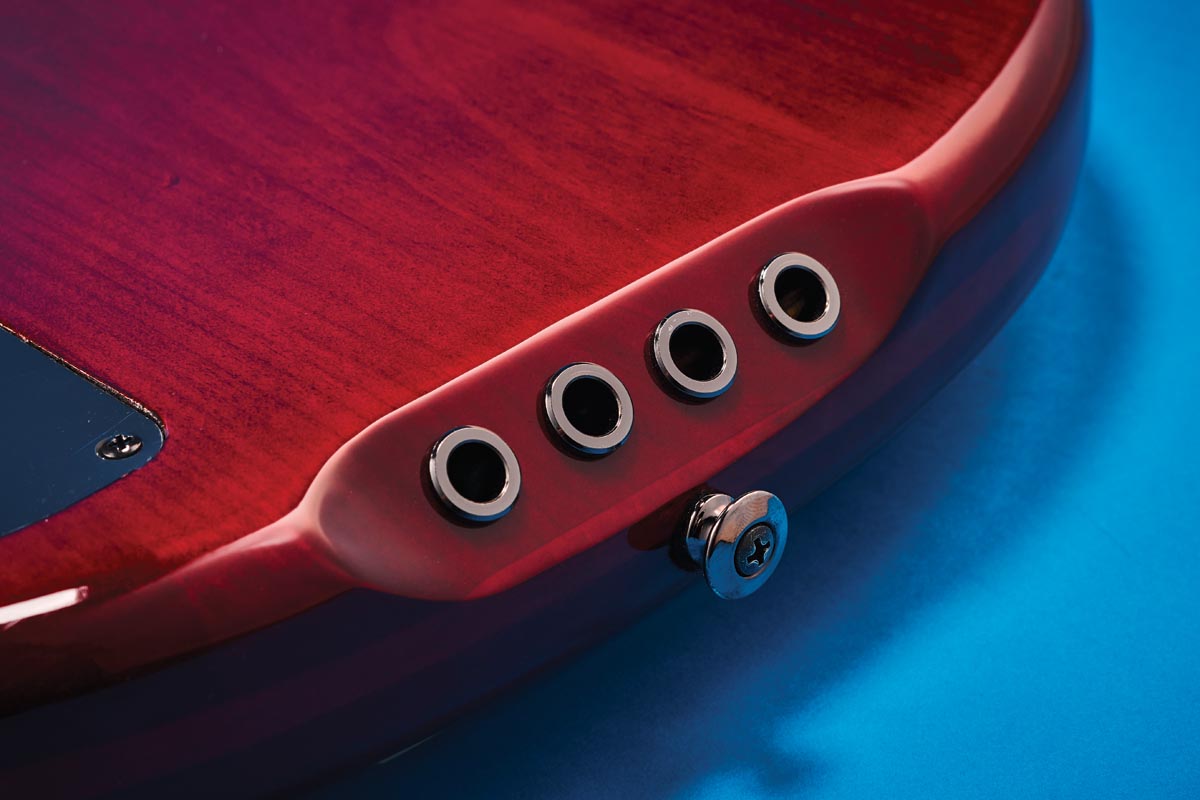
The other notable advantage conferred by the BBPH – and specifically its six-bolt neck joint – is that its sustain is excellent. If this seems insignificant, try playing Hooky-style high-register melodies and report back. You’ll love the presence that they have, and the feeling of resonant solidity when you fret the notes, even up at the dustiest of the dusty frets.
Finally, this instrument is extremely playable, thanks to its slippery rear neck finish – a must if, like its owner, you need to get to the 21st fret in a hurry. Shreddy necks aren’t for everyone, granted, but they do make life easier if you’re required to move around the fretboard a lot.
For this reason, as well as its huge mid tones, you could easily downtune the bass and use it in a hard rock or metal band, if you wished.
Conclusion
As Larry David might put it, this bass is ‘prett-ay, prett-ay good!’ You get amazing tones and playability for the cost, and although this instrument bears the Hooky hallmarks – there’s an autograph and a bit of Manchester-related graffiti on the back of the headstock – you don’t need to be a Joy Division or New Order acolyte to enjoy it to the maximum. Investigate with full confidence.
Specs
- PRICE: £1129 / $2000
- MADE IN: Indonesia
- BODY: Alder/maple/alder
- NECK: Five-piece maple/mahogany, 34” scale
- NECK JOIN: Bolt-on, six bolts
- FRETBOARD: Rosewood, 21 frets, Graphtech nut
- PICKUPS: Reversed P-style split-coil
- ELECTRONICS: Active preamp
- CONTROLS: Volume, 3-band EQ (bass, middle, treble/passive tone), active/passive switch
- HARDWARE: Lightweight open-gear tuners, Vintage Plus brass/steel bridge with strings-through-body option
- WEIGHT: 4.3 kg / 9.5 lbs
- LEFT-HANDED OPTION: No
- CASE/GIGBAG INCLUDED: Gigbag
- CONTACT: Yamaha
Joel McIver was the Editor of Bass Player magazine from 2018 to 2022, having spent six years before that editing Bass Guitar magazine. A journalist with 25 years' experience in the music field, he's also the author of 35 books, a couple of bestsellers among them. He regularly appears on podcasts, radio and TV.
